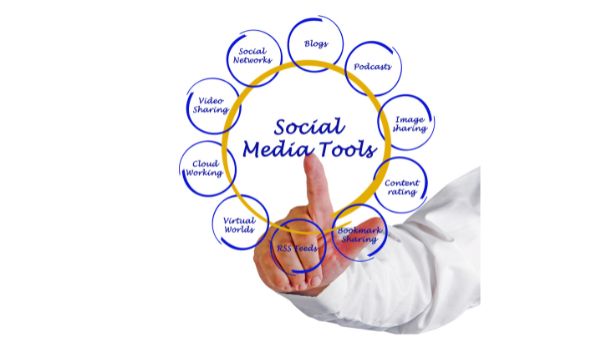In this article, we will discuss How Social Media Management Works? Social Media Management is a vague term that could make some business owners hesitant about paying for the service. Here is a guide for How Social Media Management Works. It’s easy. We post to Facebook for you so that you can focus on your business.
Which platform covers social media management?
A social media management platform is a secure, scalable tool that allows businesses to manage multiple social media accounts across departments and devices.
Top Social media platforms :
- Instagram.
- YouTube.
- TikTok.
- Pinterest.
Instagram :
Instagram is the second most accessed network behind Facebook. The popular visual-first social medium sees over one billion monthly users and 500 million daily Instagram Stories.
Instagram can also help you grow your brand awareness and introduce new products. Every month, 130 million Instagram users engage with shopping content. Instagram allows you to promote your brand and product in a friendly, authentic way without hard selling to your customers.
Facebook :
A Facebook page may be a great free marketing tool for businesses. These pages let businesses identify themselves – not just by listing product offerings and services but also by sharing links, images, and posts on a customizable page to understand a business’s personality and character better.
Facebook is a social media networking site that allows users to connect with friends, family, co-workers and others, including groups of people with similar interests. Users can share pictures, videos, articles and opinions with their friends.
Youtube :
With 2 billion unique users watching 1 billion hours of video daily, YouTube offers an excellent platform to market your business.
Add that to the compelling nature of video in marketing, and you have a winning combination. Video marketing has helped marketers increase traffic, generate leads and reduce the number of support calls.
So no doubt, leveraging YouTube will help you achieve all of these goals and more. This post shows you some of the most important steps for YouTube marketing and how you can get the most out of the network.
Twitter :
Twitter, a social networking site launched in 2006, is undoubtedly one of the most popular social media platforms, with 100 million daily active users and 500 million tweets sent daily.
Twitter can be used to receive news, follow high-profile celebrities, or stay in touch with old high school friends.
With millions of daily users, Twitter can be a powerful tool to raise awareness about your business, engage with customers and develop leads.
Setting up a Twitter for Business profile is simple, but just like a muscle, it must be used regularly to be most effective. Understanding how to navigate Twitter for your business can go a long way in business growth
Pinterest :
Pinterest is a free social networking platform that allows users to share and collect pieces of multimedia (typically images) and save them to a virtual bulletin. Often these bulletins, or boards, are dedicated to a specific topic.
These Pinterest boards can be public and available for other users to view, or they can be private, so only the owner can see it. If you’re looking to reach a new audience or your current audience in new ways, look no further than Pinterest.
Often the dark horse of social media channels, Pinterest is not all weddings, workouts, and hairstyles. Pinterest for business is a real use of the network — not only real but also effective and worthwhile.
How Much Does Social Media Management Cost?
Social media costs depend on multiple factors, from the platform to the industry. On average, businesses invest $4000 to $7000 per month on social media management, which includes marketing and advertising on one or more networks — if outsourcing, social media services cost $900 to $20,000 per month, and social media consultants cost $75 to $500 per hour.
What is the Importance of Social Media Management?

Social media managers help their organizations capitalize on the surging popularity of social media platforms by creating and overseeing engagement, branding and marketing campaigns.
Brand awareness is crucial to any business, from multimillion-dollar corporations with extensive advertising budgets to small business owners with limited funds. Customers have to know what businesses provide before taking advantage of those goods and services.
Currently, one-third of Americans say that social media is where they learn about new products and services. For Millennials, social media is second only to television as a way to learn about new products.
Brand loyalty is equally crucial. Brand loyalty drives repeat business, whether buying a Blu-ray from a multimillion-dollar corporation or stopping by the new ice cream shop every Saturday.
Top 5 Best Social Media Management Tools

The best social media management tools make it simple and easy to manage your marketing using social media in a targeted way.
SEMrush
SEMrush is best known for being an inclusive SEO software platform. Still, it also incorporates useful tools for social media management across Facebook, Twitter, Instagram, Pinterest, LinkedIn and Google My Business.
The social media poster allows you to schedule and post to these different social media platforms. It includes an image editor, UTM-builder and link shortener for customizing your posts, which you can publish immediately or according to an automated schedule.
There’s also the ability to manage ads across Facebook, Instagram, Messenger, and the Audience Network.
2. Hootsuite
Hootsuite aims to provide an all-in-one platform for social media management across multiple sites. As expected, there’s an option to search and filter through existing social media to find brand mentions, insights, and demographic information.
Additionally, with any of Hootsuite’s plans, you can schedule posts from multiple profiles across multiple social media sites. This allows you to ensure that any marketing campaigns are properly timed and targeted when and where you need them. This is especially when posts can be tagged to ensure you store them in the right place for use at the right time.
3. Sprout Social
Sprout Social is probably first and foremost known as a one-stop-shop for managing and scheduling all of your social media accounts through one simple-to-use platform.
Very handy indeed for your company’s social media administrator when they’re trying to juggle Facebook, Twitter, Pinterest and more at once.
4. Buffer
Rather like Sprout Social above, Buffer is another all-rounder that lets you post to your platform and then analyze the results.
One of its major plus points is just how simple it is to use while also giving you flexibility. The fact it provides real-time analytics makes instantly judging your content’s impact a doddle.
Use the “Top Post” icon to compare different forms of content to see which works best for each network. While the Buffer app also allows for seamless Google Analytics integration for tracking the success of your marketing campaigns.
5. Hubspot
Hubspot Social Media Software is a suite of social media management tools available under the Marketing Hub. The aim is to save time by prioritizing social connections you place the most value on across various social media platforms, such as Facebook, Twitter, Instagram, YouTube, and LinkedIn.
These tools are available as part of the Hubspot Marketing Hub, which means you can use them in conjunction with a range of other focused marketing tools.
As mentioned above, this means not simply monitoring and managing your social media but also ensuring that the work you put into it translates into measuring business return.
FAQ about How Social Media Management Works?
How do beginners manage social media?
- Decide which social media platform(s) to use.
- Optimize your social media profiles.
- Connect your website or blog with your social media pages.
- Add social media buttons to your website.
- Find and follow the influencers in your niche.
- Keep a balance between following and followers.
What skills do you need to be a social media manager?
- Efficiency & top-notch organization.
- Traditional & digital marketing.
- Customer care.
- Making connections.
Why should I use social media management tools?
A social media management tool will make it much easier to keep track of all your conversations. To begin with, all of your data is in one place; this already makes your job easier. Some tools also allow you to search for conversations by keyword, which may make you feel like you have a social media superpower.
How much does it cost to maintain a social media page?
The industry average settles between $200 to $350 per day. They found that the industry average was $4,000-$7,000 per month, which works out to the above per-day costs.
As a percentage of the total marketing budget, The CMO Survey found that social media spending was at 11.7% in 2016 — a three-time increase since 2009.

